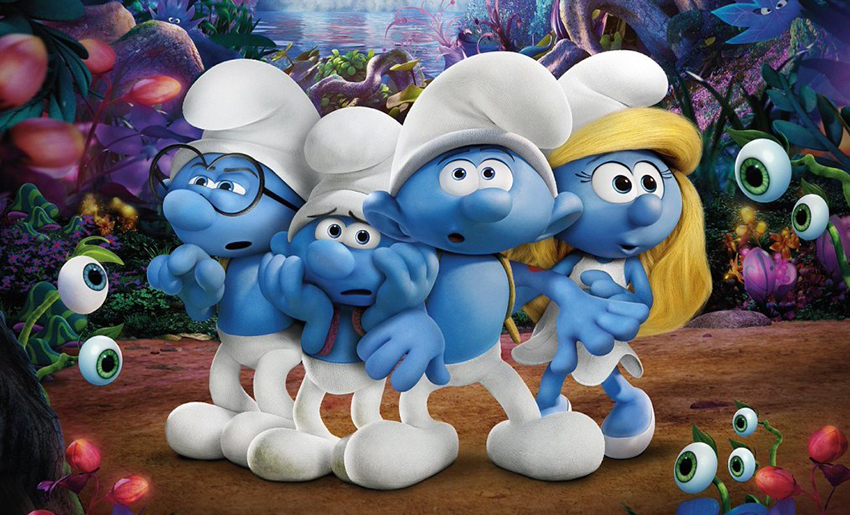The worst of the three terrible Smurfs films this decade, “Smurfs: The Lost Village” is a stale depiction of one-dimensional characters brought to life by celebrity voice actors.
As the first fully-animated modern Smurfs movie, “The Lost Village” does admittedly boast an impressive look, with bold visuals clearly inspired by James Cameron’s “Avatar.” Massive flowers, towering trees and magical plants surround the title characters, giving the world a majestic feel that the story fails to match, despite a hint of smart political commentary.
Demi Lovato leads the film as the voice of Smurfette, the outcast of Smurf Village. Other than Smurfette, each Smurf has two defining characteristics: they are male and they only have one personality trait. The early bits of the film would be more accurately titled “Snow White and the 101 Dwarves,” with a lone normal person surrounded by neurotic, gimmicky characters.
Much has been made of this “Smurfette Syndrome,” so much so that the concept has become a broad criticism of films with a single female cast member. When films such as those of the Smurfs franchise feature a single female character surrounded by men, it leads to an oddly creepy feeling, as though all the men are simply competing for the woman as a prize. “The Lost Village” carries elements of this issue, which distractingly leads to a question the film skirts around but never answers: How are Smurfs born?
Director Kelly Asbury obviously sees these problematic elements of the Smurf mythos, and addresses them by setting the plot into motion with some of the classic characters stumbling upon a village made up entirely of female Smurfs.
The new characters introduced in this village are highly-capable, generally-badass women that give the toon a refreshingly feminist twist. By turning the classic trope started by this franchise on its head, Asbury makes a strong statement about passive, “token” female characters that few animated movies dare.
Unfortunately, the rest of the movie fails to match the boldness of its subtext, settling for a cheap, predictable plot padded with watered-down jokes and sight-gags that would fail to entertain even lifetime Smurfs fans for more than a few minutes.
The juvenile jokes not only waste the audience’s time, but also the skills of the dynamite voice actors, including “Magic Mike”’s Joe Manganiello as Hefty, “30 Rock”’s Jack McBrayer as Clumsy and “Community”’s Danny Pudi as Brainy. Each has a voice perfectly suited to their character, and they all deliver solid laughs upon their introductions in the film.
Following their humorous debuts, these characters inexplicably stay in the movie and become the supporting cast. Every five minutes or so, each one makes the same joke that introduced them, to an annoying and repetitive effect that makes the movie’s hour-and-a-half runtime feel like four hours.
Adding to the interminable experience of watching “Smurfs: The Lost Village” is its blindingly fast pace. The plot hops from place to place without any time to breathe, taking away all opportunity for character development.
With already flat characters, this prevents the viewer from developing any sort of emotional investment. In the end, it leads to a boring, unmemorable adventure where many things happen, but none of them mean anything.
After two disappointing outings, “Smurfs: The Lost Village,” looked to hit reset with a new aesthetic and the introduction of more female characters — but make no mistake, this is a bad, bad film.
“Smurfs: The Lost Village”
Rating: PG
Runtime: 89 minutes
Score: 1.5/5 stars















